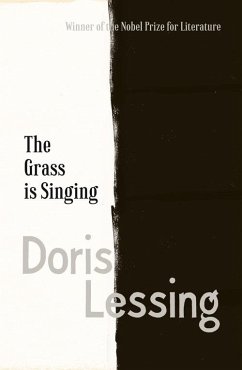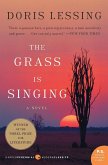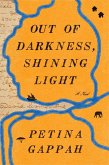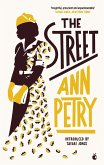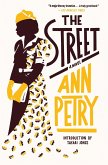Die Farmersfrau Mary Turner ist von ihrem schwarzen Hausdiener ermordet worden. Der Fall wird als typisches Verbrechen eines "minderwertigen Schwarzen" heruntergespielt. Erst im Lauf der Erzählung, die in den dreißiger und vierziger Jahren in Rhodesien spielt, erfährt man, wie es unausweichlich zu diesem Mord kommen mußte. Mary ist in sehr ärmlichen Verhältnissen groß geworden. Enge Freundschaften, emotionale Bindungen geht sie nicht ein. Sie merkt nicht, dass sie dazu gar nicht fähig ist. Um nicht zur alten Jungfer zu werden, heiratet sie mit Dreißig den Farmer Richard Turner und geht mit ihm auf seine einsame Farm. Sie stellt fest, dass ihr Mann nie aus seiner finanziellen Misere herauskommen wird. Mary verfällt schließlich zunehmend in Apathie. Eines Tages wird der schwarze Farmarbeiter Moses, dem sie einmal jähzornig mit der Peitsche ins Gesicht geschlagen hat, als Diener ins Haus geholt. Mary hat Angst vor ihm. Sie ahnt, dass er sich für den Peitschenhieb, der ihn zutiefst gekrä nkt hat, rächen wird.
'Original and striking...full of those terrifying touches of truth, seldom mentioned but instantly recognised.' New Statesman
'Doris Lessing responds more passionately than most writers to people or situations: often she responds with hate or rancour, but always with passion. In "The Grass is Singing", you can feel the dynamo-like throb of a formidable talent; by its side, most novels of 1950 look like crochet-work.' The Times
'"The Grass is Singing" focuses on the blighted life of a woman whose spirit is destroyed by a disastrous marriage and by an environment to which she couldn't respond. More than any other white African writer of her generation, Doris Lessing is aware of the seductive cruelty of colonialism, and is one of our strongest, fiercest voices against injustice, racism and sexual hypocrisy.' Independent on Sunday
'Doris Lessing responds more passionately than most writers to people or situations: often she responds with hate or rancour, but always with passion. In "The Grass is Singing", you can feel the dynamo-like throb of a formidable talent; by its side, most novels of 1950 look like crochet-work.' The Times
'"The Grass is Singing" focuses on the blighted life of a woman whose spirit is destroyed by a disastrous marriage and by an environment to which she couldn't respond. More than any other white African writer of her generation, Doris Lessing is aware of the seductive cruelty of colonialism, and is one of our strongest, fiercest voices against injustice, racism and sexual hypocrisy.' Independent on Sunday

